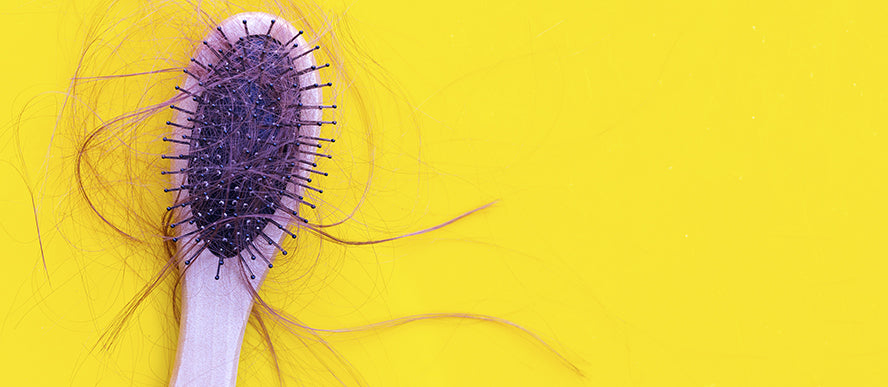Stress Induced & Traction Alopecia

Alopecia refers to the partial or complete loss of hair from the scalp or other parts of the body. It can be caused by various factors, including genetics, autoimmune disorders, hormonal imbalances, and environmental factors. While some types of alopecia may be permanent, others can be treated or managed through various interventions.
Preventing alopecia involves taking proper care fo the hair and scalp, practicing good hygiene, and avoiding behaviors that can damage the hair follicles. This includes avoiding tight hairstyles that pull on the hair, minimizing the use of heat styling tools, using mild shampoos and conditioners, and protecting the hair from harsh environmental factors such as extreme heat or cold. Additionally, maintaining a healthy diet that includes essential vitamins and minerals can promote healthy hair growth and prevent hair loss.
Stress Induced Alopecia
Stress is a common experience for most individuals, and it can manifest in various ways, including physical symptoms. One physical symptom that can occur due to stress is alopecia, or hair loss. Stress-induced alopecia is a condition where hair falls out due to high levels of stress. This type of hair loss can be temporary or permanent, and its severity may depend on the intensity of stress experienced.
Stress-induced alopecia occurs when stress causes the hair follicles to enter a dormant phase. This phase, known as the telogen phase, results in hair falling out from the scalp. While some hair loss is natural, stress-induced alopecia results in excessive hair loss, which can be alarming. The condition is more common in women than in men and can occur at any age.
Individuals experiencing stress-induced alopecia may notice hair loss in clumps or patches, and the hair may come out easily when combing or washing. Stress-induced alopecia can be caused by several factors, including emotional stress, physical stress, and nutrient deficiencies. Therefore, treating the underlying cause of stress-induced alopecia is essential for effective treatment.
Treating stress-induced alopecia typically involves managing the underlying cause of stress. This can be done by engaging in stress-reducing activities such as meditation, yoga, and exercise. Additionally, nutrient deficiencies can be addressed through a balanced diet or dietary supplements. In some cases, medication may be prescribed to manage underlying medical conditions that may be contributing to hair loss.
Stress-induced alopecia is a condition that can result in excessive hair loss due to high levels of stress. While the condition can be alarming, treating the underlying cause of stress is essential for effective treatment. Engaging in stress-reducing activities, maintaining a balanced diet, and managing underlying medical conditions can help manage stress-induced alopecia and restore hair growth.
What Is Traction Alopecia?
Traction alopecia is a type of hair loss which occurs as a result of repeated, prolonged pulling forces on the hair. This places undue trauma on hair follicles, which, if sustained over a long period of time, can lead to permanent hair loss.
When you pull tightly on your hair, the follicles become inflamed, damaged, and eventually scarred. “In the early phases, hair can grow back. However, chronic forms over several years can become scarring and that is permanent.
How to Avoid Traction Alopecia
To avoid traction alopecia, you’ll want to rethink any tight styles or at least give the scalp a break from those styles now and again. Traction alopecia is most frequently induced by hair styling, so giving a rest to the scalp from hairstyles that damage hair follicles such as ponytails, tight braiding, flat ironing, and hair extensions reduce the risk of developing traction alopecia. Avoiding too many chemical treatments, such as color and relaxers, will help to make the hair less susceptible to breakage, and therefore maintain as much hair length as possible. Maintaining a good diet, with plenty of protein, will also help to support healthy hair growth.
